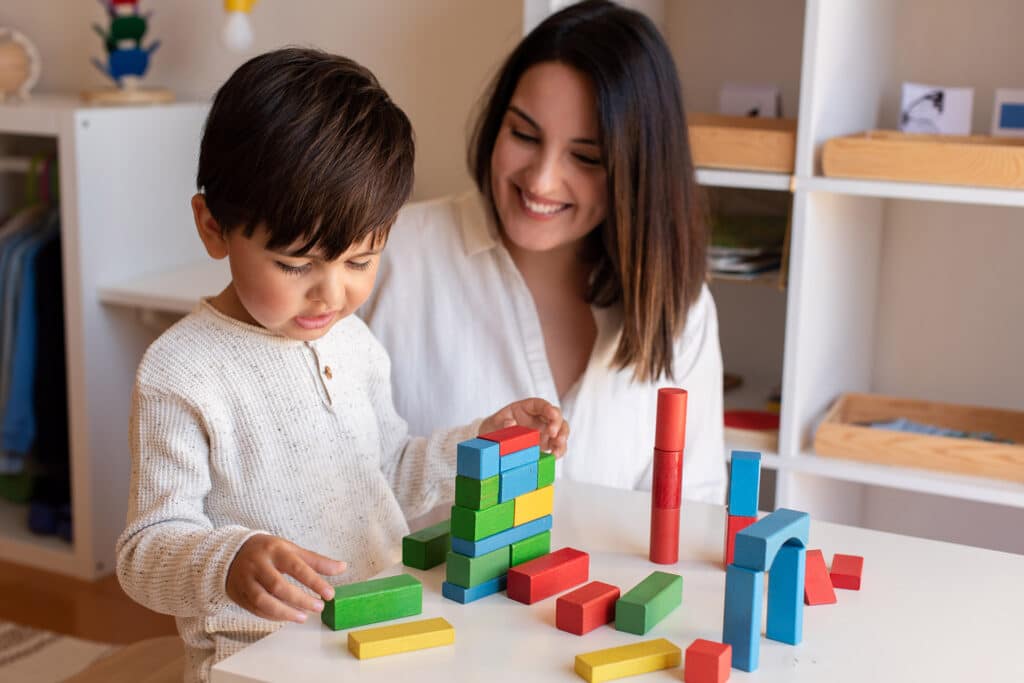Family Reunion Tips
By: Gina M. Ballone, MS, BCBA, LBA

As summer is in full gear, many family reunions take place that can be challenging for children with ASD. It is not uncommon to encounter some difficulties related to changes in our environment and how we deal with them. This article is intended to provide some helpful tips based on the principles of ABA to help you make a positive and successful experience during family reunions!
Regardless if you have ASD, there will always be a mix of personalities when relatives gather together. Therefore, we need to be realistic with our expectations on what we expect from our children during the gatherings such as family reunions.
Tip 1: Pair your relatives:
If you are concerned that your child will refrain from engaging with relatives whom they don’t get to see as often, re-arrange the environment in such a way so that your child will want to interact with their relatives. Bring highly preferred activities and games that you know your child likes and have them available so that they can be enjoyed with others. To help “break the ice” during those initial interactions with those long lost cousins, immediately provide highly preferred items/activities to increase positive social interactions. Here are just a few examples (but please note that motivation is different for every child, so these are only intended to give you ideas):
* You know there will be a swimming pool, bring:
- Water toys such as fish that wind up and take off
- Bubbles
- Raft for 2
* You know there will be a playground, bring:
- Chalk for Hopscotch
- Set up an obstacle course on the playground
- Play preferred music and do the “freeze” game
* You know there will be picnic tables at a pavilion, so make an activities table:
- Board games (any games that are highly preferred that encourage turn taking)
- Arts & Crafts (painting sun catchers, making pinwheels)
- Sensory Table (moon sand, shaving cream, slime)
Do your research ahead of time and come “equipped”. The “reason” behind pairing is to make a positive “connection” to reduce the value of escape/avoidance behavior. If your child doesn’t have the acquired skills of being motivated by peer-mediated reinforcement (i.e., isn’t easily motivated by social situations with their others), then it’s ideal to “condition” a positive experience. I’ve had a lot of families tell me that relatives are like “ghosts” to their child, and I explain it’s because there has never been a “reason” or “motivation” to interact with them. Relatives cannot become “valuable” to your child unless they are “paired” with something positive. Once we establish a positive relationship, then your child will be “motivated” to seek out that individual. Tell your family and friends what your child likes. Before you know it “cousin Timmy” will be excited to play freeze tag with your child during the next family gathering!
Tip 2: Dealing with Picky Eaters at the Family Reunion:
It’s very common for children to be picky eaters, especially when it involves new food that they’ve never been exposed to. Although the field of ABA has extensive and empirically validated research studies showing highly successful outcomes with increasing variety of foods in a child’s repertoire, you might want to “pick and choose” your battles and “modify” your program when dealing with novel environments. Ideally, it would be advantageous to run “practice” trials before a Family Reunion to set your child up for success. For example, if you know ahead of time that the food at the reunion might be a struggle, you can incorporate those foods in a formal food program with your BCBA. However, this might not always be conducive to your busy schedule, so don’t feel bad about bringing specific food that your child likes to the reunion. Food allergies are so common these days, that it will not seem odd bringing specialized food. You can even bring enough to share with others, and possibly set up additional opportunities for positive interactions!
Tip 3: Catch good behavior
A lot of times we are hyper focused on “looking out” or dealing with problem behavior that we completely forget to reinforce any kind of appropriate behavior that our child does. If your child loves attention, make sure you give them social praise when they are doing something good! The more we reinforce appropriate behavior, the higher chances of increasing more instances.
The family reunion tips mentioned in this article are written in a way to provide you some suggestions in a general format. Please note that they are not written in such a way to “replace” any Behavior Intervention Plans that you may already have in place. Enjoy the time you have with your family and remember that every interaction will be better when there is motivation involved!
Date Posted:
July 15, 2019
Share this blog
Categories
Recent Blog Posts








